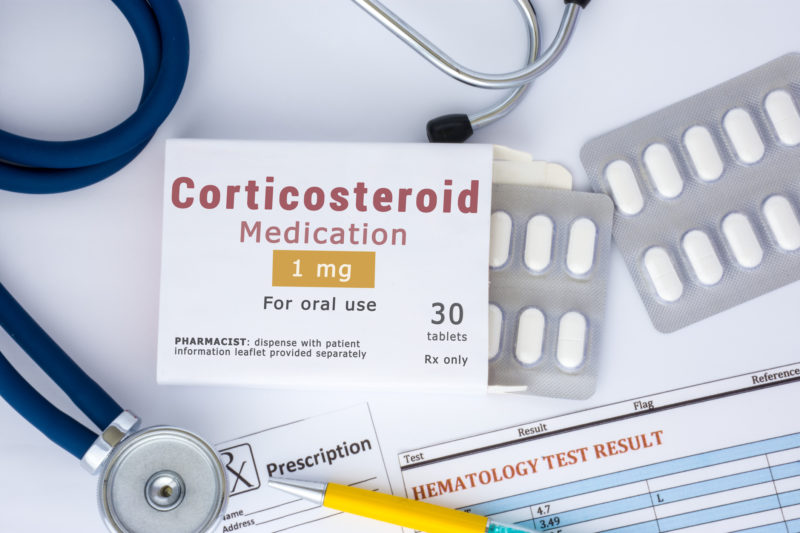Many people with systemic lupus erythematosus (SLE) take corticosteroids like prednisone, usually in conjunction with other medications, as part of their treatment. Although corticosteroids work very well to control flares, they are known to have numerous side effects, including insomnia, weight gain, osteoporosis, and an increased risk of infection. The risk of these potential problems is greatest for people taking high doses of these medications, which is why rheumatologists recommend using the lowest effective dose or weaning off these drugs if they’re no longer needed.
Although it might seem like stopping corticosteroids is a no-brainer if you’re in remission, doing so might raise your risk of flares. Last year, a study published in the journal Annals of the Rheumatic Diseases concluded that staying on a low-dose of prednisone for people with lupus was the safer option.
In that study, researchers randomly assigned lupus patients who had been in remission for at least a year to either stay on a low dose of prednisone (5 mg/day) or to stop the drug completely. They found that 27 percent of patients who went off prednisone suffered a flare during the subsequent year, compared to only 7 percent of those who continued taking a low dose.
Now, however, a new study has come to essentially the opposite conclusion. In this study, published in the journal ACR Open Rheumatology, researchers tracked patients from the Toronto Lupus Clinic who had been in remission for at least two years. About 100 patients continued on 5 mg/day of prednisone, while a similar group weaned off the drug.
Researchers found that flare rate was lower in the withdrawal group at 12 months and 24. Additionally, at 24 months, moderate to severe flares occurred less frequently among patients who had been weaned off prednisone.
This new study was observational — researchers did not direct participants to stop prednisone or continue — so it’s hard to say whether other factors beyond being in remission might have impacted the participants’ treatment decisions. Other drugs the patients were using (such as antimalarials like hydroxycholoroquine) might also have played a role.
Still, the authors concluded that “gradual withdrawal of prednisone seems safer than abrupt discontinuation in patients with clinically quiescent SLE and could be attempted because the vast majority of these patients will not develop a moderate to severe flare within 24 months.”
If you’re in remission and thinking about stopping a corticosteroid, be sure to talk to your doctor first. Keep in mind that these drugs always need to be tapered off slowly; abruptly stopping can be dangerous.
Track Your Symptoms with ArthritisPower
Join CreakyJoints’ patient-centered research registry and track symptoms like fatigue and pain. Learn more and sign up here.
Maintaining steroids for people with inactive Lupus prevents relapse. Annals of the Rheumatic Diseases. February 21, 2020. https://blogs.bmj.com/rheumsummaries/2020/02/21/maintaining-steroids-for-people-with-inactive-lupus-prevents-relapse-2/.
Mathian A, et al. Withdrawal of low-dose prednisone in SLE patients with a clinically quiescent disease for more than 1 year: a randomised clinical trial. Annals of the Rheumatic Diseases. March 2020. doi: http://doi.org/10.1136/annrheumdis-2019-216303.
Tselios K, et al. Gradual Glucocorticosteroid Withdrawal Is Safe in Clinically Quiescent Systemic Lupus Erythematosus. ACR Open Rheumatology. July 10, 2021. doi: https://doi.org/10.1002/acr2.11267.






